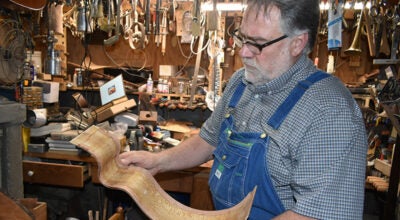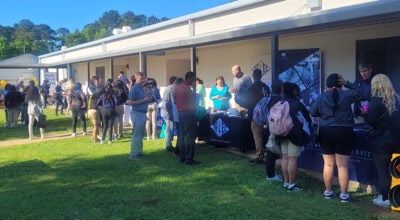This place Chambers County: Its earliest trails and roads
Published 10:52 am Friday, April 13, 2018
VALLEY — The spring general membership meeting of the Chattahoochee Valley Historical Society will take place at 3 p.m. EDT Sunday, April 15th in the Lanier Room of H. Grady Bradshaw-Chambers County Library. The general public is invited to witness an outstanding presentation on the history of Chambers County.
Dr. Horace McLean “Mac” Holderfield will have a power point program presenting rarely seen historical maps and other visuals portraying the physical history of the area that became Chambers County in the 1830s. Some of the maps he will be showing are from the University of Alabama collection. They show Indian trails, Indian names for creeks and villages and the first settler roads. He will also present images showing the rural locations of homes and buildings that appear on the first aerial photographs of the county taken by the federal government by the U.S. Department of Agriculture in the 1930s.
“The content of Dr. Mac’s presentation may be helpful for anyone studying rural family history and wanting to develop a sense of house location for family ancestors and neighbors,” said Malinda Powers, CVHS president.
Holderfield said that he was born into farm families composed of many elderly relatives who were the last non-mechanized farmers in Chambers County and nearby Heard County, Ga. “They treasured their farm land,” he said. “They all but worshiped it. Their fields had names as simple as the Gray Field, where Indians had lived, and disturbing names such as the Devil’s Half Acre,” he said. “Stories were told about the animals, branches and creeks and about the trees and the woods. No one ever boasted about how much wealth they had accumulated by the end of the year. They did have pride in how well they’d built and maintained. They had grown plants and animals appropriate to the land of the era while struggling to survive the vagaries of decades of economic change, weather and bugs.”
Holderfield adds that his ancestors did not perceive the land, nor their labor, as commodities. “They possessed many self sufficiency skills which contributed to their sense of self-worth and independence,” he said. “I absorbed my ancestors’ attachment to the earth at my birthplace on Stroud Creek in Chambers County. I was motivated to understand the land’s physical elements as well as the societies of the people who lived there.”
In the pre-electronic past, rural farm families spent much time sharing stories across generations inhabiting a household. Among Holderfield’s families, an oral tradition of storytelling about the olden times was maintained. His curiosity about his families’ historical experiences stimulated an interest in local history from childhood and led to him earning two degrees in history from Auburn University and having a year as a Fulbright Fellow studying medieval history in Germany. He then taught history for six years before seeking to further his education. As a Kellogg Fellow, Holderfield earned
a Ph.D. in Higher Education from Florida State University.
He retired following 25 years of employment with the South Carolina State Board for Technical and Comprehensive Education, 18 years of which he’d served as the associate executive director of instruction. He and wife Linda then returned to the family farm along Stroud Creek in 1998.



